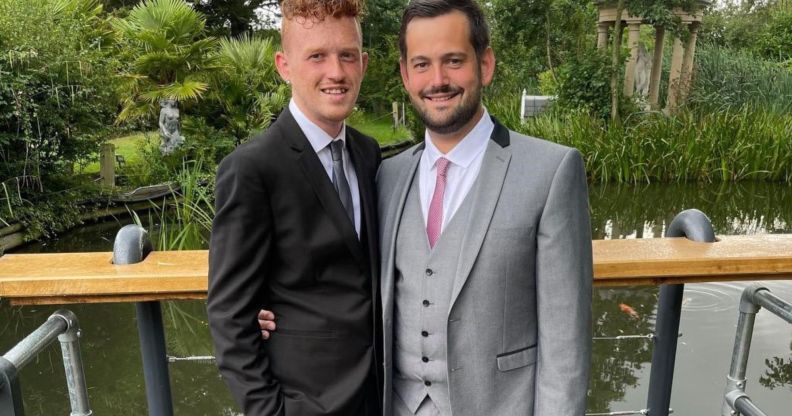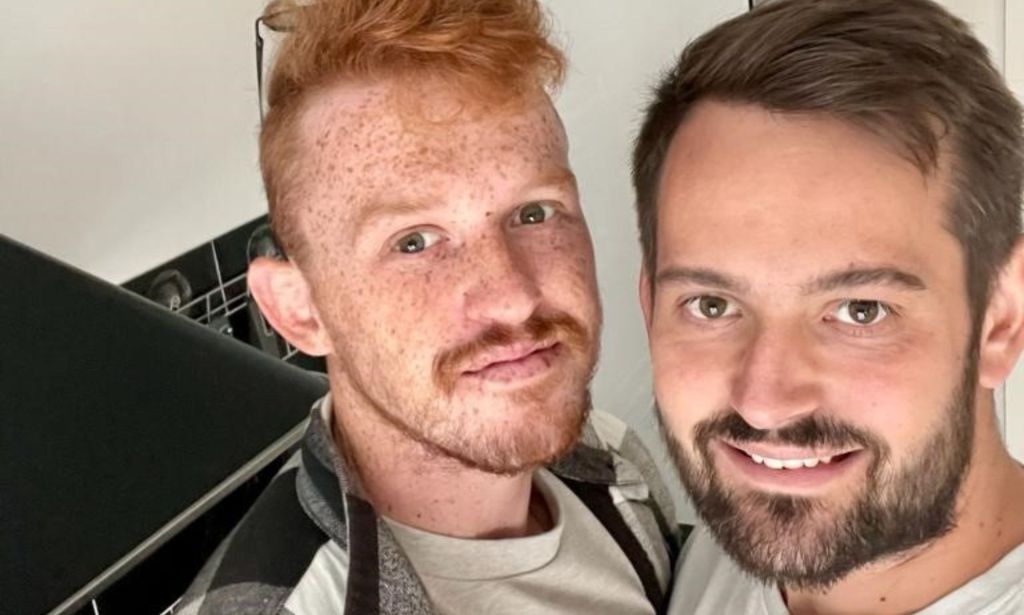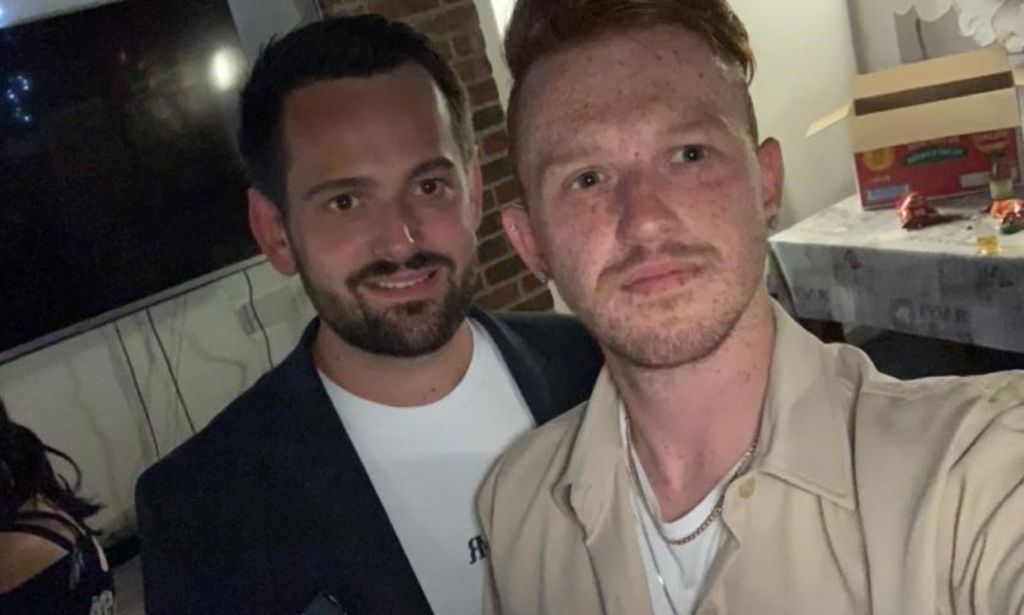Couple feared being gay would get in way of becoming foster carers. They couldn’t have been more wrong

Ricardo and Bradleigh, a gay couple from Essex, say their lives were enriched by fostering kids, and now they want other LGBTQ+ couples to consider fostering. (Bradleigh and Ricardo)
Ricardo and Bradleigh, a gay couple from Essex, say their lives were enriched by fostering kids, and now they want other LGBTQ+ couples to consider fostering. (Bradleigh and Ricardo)
A gay couple who became foster carers open up about their fears and the rewarding realities of looking after children.
Bradleigh and Ricardo spent two years looking into surrogacy and IVF (in vitro fertilisation), but the costs and other barriers made them reconsider how they could include children in their lives.
“Then we were talking to friends who foster, and they were like: You should do fostering! You’d love it’,” Ricardo tells PinkNews.
The couple, from Essex, played with the idea for about a year. They went to a local open day with a list of questions and a promise to each other that they would take things slowly – they ended up beginning the fostering process that day.
“It was just one of the moments where it just felt right, like this is something we really could do’,” Bradleigh adds.
The number of children looked after, or in care, in England has risen in recent years, reaching 82,000 in 2022. Almost 70 per cent of looked after children lived with foster carers in 2021 – yet, the number of fostering applications has fallen, from 10,520 in 2018 to 8,280 in 2022.
Ricardo says the open day opened their eyes to the circumstances that leave some children in care, including losing parents and being part of a police investigation.

While they were ready to open their home, they were concerned about how parents would react to the news their child was living with a gay couple.
“We felt like some people were going to be like: ‘I can’t leave my boy there. They’re going to turn him gay.’”
So far, parents have been accepting of them as foster carers. It’s made them realise “just how accepting everything actually has gotten in the last 10 years or so”.

It was quite exciting for them to finally get their first placement three months after they got approved. The couple initially met the kid over a camera chat because of COVID restrictions, but Bradleigh says there was an “instant connection” when they met him for the first time.
“We met him first over in a park for an hour, and it was just an instant connection because he just felt – I don’t know, I don’t know what it is,” he says. “He stayed for a week, and when he went back, it was really odd.”
“Adding a children to a house where you’ve never lived with a child before – it’s not a joke when people say it’s a big adjustment,” Ricardo adds. “It’s like throwing a party, and it ended early.”
When the kid returned later, Bradleigh remembers how he was “so excited to come back that he slipped on a doormat”.
He says many kids are “just looking for someone to provide that care” and “initial building blocks” they may have missed.
Thinking about advice they would give other LGBTQ+ couples looking at fostering, Ricardo says it’s important to remember: “A home is a home.”
“It doesn’t matter if you’re a man and a man, a boy and a girl, a home is a home,” he says. “It just needs stability. It just needs care. It just needs routine, and that’s all the children need.”
Find out more about fostering by visiting Essex Fostering, calling 0800 801 530 or attending an Essex County Council fostering information event.

